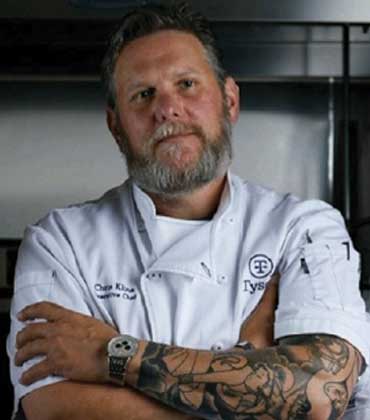THANK YOU FOR SUBSCRIBING
By Bob Schug, Vice President Of Digital Services And Supply Chain, Mondelä“Z International
From a Stool to a Chair: People, Process, Technology,...
By Barbara Masters, VP Regulatory Policy, Food and Agriculture, Tyson Foods
Advantages of Traceability Beyond Connecting Consumers to...
By Philip Quinn, Senior Director of QA, Papa John’s International
Strengthening Allergen Procedures and Controls

5 Major Technological Innovations That Will Reshape the Food Industry
Ryan Davis, Manager, Automation Technology, General Mills

 Ryan Davis, Manager, Automation Technology, General Mills
Ryan Davis, Manager, Automation Technology, General MillsJust like new technologies are supporting other significant industries across the globe, the food industry, too, will have a great amount of scope to implement these technological advancements.
Over the past few years, technology has become an eminent part of distinct facets of our life. It has not remained a science fiction anymore. What is the more surprising fact is that it has been introduced in the food and beverage industry as well. It is playing a major role in the way the food is produced and procured. The following are some of the technologies that are reshaping the food industry in ample of ways.
1. Robotics and machines
 The food industry has become more cost-effective and qualitative with the introduction of machines and robotics. Innovative machines are helping a lot in reducing the expense of keeping the food fresh and increasing the productivity of the industry. Robotic machines are contributing significantly to maintaining the safety net for dangerous jobs in the food industry.
The food industry has become more cost-effective and qualitative with the introduction of machines and robotics. Innovative machines are helping a lot in reducing the expense of keeping the food fresh and increasing the productivity of the industry. Robotic machines are contributing significantly to maintaining the safety net for dangerous jobs in the food industry.
2 3D Printing
3D printing has surprisingly developed as a key technology in the food industry over these last few years. 3D printing is being significantly utilized to create food prints like pizza and other soft foods, thus laying new pathways for innovations.
3. AI-Based solutions
Artificial Intelligence (AI) has proven to be a helping hand to many domains, including the food and beverage industry. It has helped the industry with the production process as well as with some of the best forecasts for the company size and the way to proceed.
The most significant contribution that AI has made is in terms of shaping and understanding the customers’ minds. To a considerable extent, AI has assisted in customizing the menu according to the repetitive choices and other data analytics.
4. Drones
This innovative technology is considered to be of great significance in terms of precision in agriculture. The technology uses GPS tracking systems and satellite imagery to monitor soil level, crop yields, and weather patterns. In this way, it increases the efficiency of farms. Drones also help in gauging the health of the crops in order to ensure damaged or diseased crops are eliminated.
5. Sensors
Sensors help in transforming the physical world into a world where data help managers with valuable insights. It has helped the managers in working more conveniently and efficiently since keeping track of inventory and food ingredients has become easier. Sensors and smart devices offer real-time data of the production assets, which has decreased the potential of downtimes.
Technology is an integral part of people's lives, and the food industry has yet to extract a lot out of it.
See Also: Top Sensor Tech Solution Companies
Read Also














